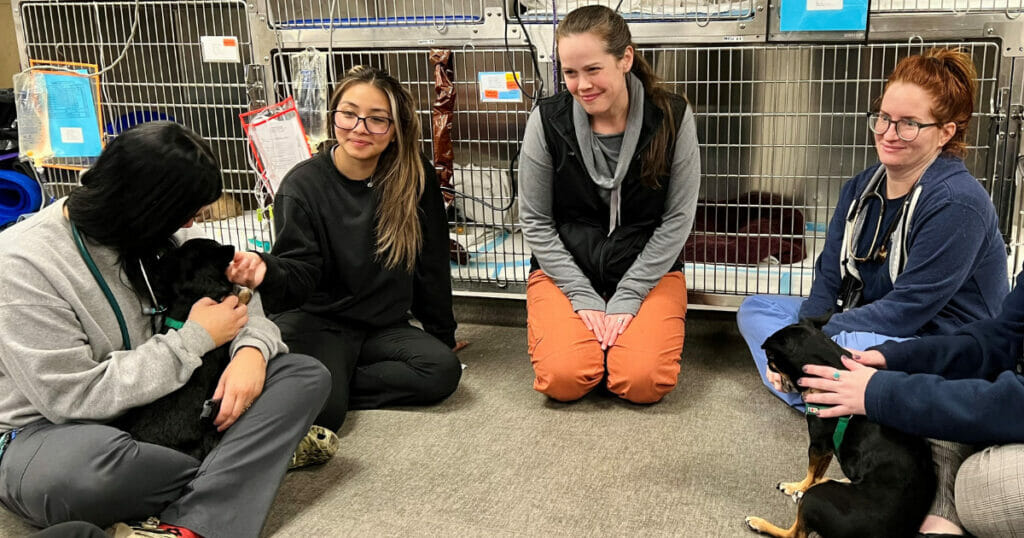What is Veterinary Social Work?
Veterinary social worker attends to the human needs and emotions that arise during veterinary care. Discover their benefits.
The bond between an animal and person is one of the most cherished life experiences for many people. Our pets are often a treasured part of the family. As with other family members, they can provide us with joy, laughter, and long-lasting, fond memories. Our compassion can also cause us to suffer from worry, stress, and grief when the relationship with our pet is in jeopardy. When our beloved pet is sick, we are often at our most vulnerable that can make communication and decision-making when seeking veterinary care difficult. That’s where veterinary social work comes into play.
A Growing Practice Area
Veterinary social work is an area of social work practice that attends to the human needs and emotions arising during the veterinary medicine process. It has developed as an area of practice over the past 30 years and continues to evolve with the needs of the profession and our communities.
There are many pioneers of the veterinary social work movement including, but not limited to, Louisiana State University, Ohio State University, Michigan State University, Pennsylvania University, and Tufts University. In 2002, Elizabeth Strand founded the post-graduate Veterinary Social Work certificate program for social workers at the University of Tennessee. With more than 400 alumni, it is now widely recognized as the most comprehensive certification to become a veterinary social worker. The areas covered in this certification are Grief and Pet Loss, Animal-Assisted Interactions, the Link Between Human and Animal Violence, and Compassion Fatigue and Conflict Management.

What Veterinary Social Workers Do
Veterinary social workers collaborate with interdisciplinary teams to enhance patient outcomes, client experience, and caregiver support. Veterinarians and their teams are not usually trained to work with people experiencing crisis, trauma, or grief. The pandemic has created additional pressures on the veterinary-client relationship, including high demand for services and staffing constraints. A veterinary social worker can help alleviate some of these pressures by adding professional expertise to high-emotion situations.
Veterinary Social Workers may:
- Provide clients emotional and decision-making support during emergency medical treatment, quality-of-life conversations, and euthanasia.
- Lead support groups for pet loss, chronic illness, or other topics.
- Coach team members on empathetic communication skills, de-escalation strategies, and how to have difficult conversations.
- Offer debriefing, crisis support, wellness information, and referrals for ongoing support to team members to curb compassion fatigue.
- Connect with community resources to build a network of support.
- Supervise social work interns to create learning opportunities and increase program reach.
Veterinary Social Workers at MedVet
MedVet is committed to providing expert, compassionate patient care and the best possible client experience. We are also working hard to build the best place in our profession to give in receive care. Our veterinary social work program, which began in MedVet Chicago and MedVet Columbus, supports these pursuits. We continue to build this team to extend this support to other MedVet and WestVet locations. For more information about these opportunities, visit medvet.com/careers.
Pet Care Resources
For ways to ensure your pet lives a happier, healthier life, visit our Pet Care Resources library.
View ResourcesPet Care Resources
For ways to ensure your pet lives a happier, healthier life, visit our Pet Care Resources library.
View Resources